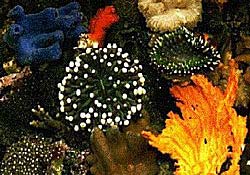 The phenomenon of global warming may have permanently destroyed some of the rarest coral reefs on the planet. This is the assertion of a group of international researchers after surveying 21 locations and over 50,000 square meters of coral reefs in the Seychelles archipelago from 1994 to 2005.
The phenomenon of global warming may have permanently destroyed some of the rarest coral reefs on the planet. This is the assertion of a group of international researchers after surveying 21 locations and over 50,000 square meters of coral reefs in the Seychelles archipelago from 1994 to 2005.
The researchers analyzed the long-term effects of rising temperatures caused by global warming, which led to unprecedented increases in surface temperatures in the Indian Ocean, resulting in the destruction of over 90% of the coral reefs within the Seychelles archipelago.
This study, led by Nick Graham from Newcastle University (UK) and involving scientists from Australia and the Seychelles, demonstrated that the temperature spike in 1998 had devastating short-term and long-term impacts, preventing the regeneration of many coral reefs. These reefs were shattered and covered by algae. Their disappearance has left diverse marine life without food and shelter.
The research also revealed that fish species diversity has decreased by 50% in the most heavily impacted areas.
“It may be too late to save many coral reefs, but this study emphasizes the importance of reducing greenhouse gas emissions and their impact on the planet’s most diverse ecosystems,” emphasized Nick Graham.


















































